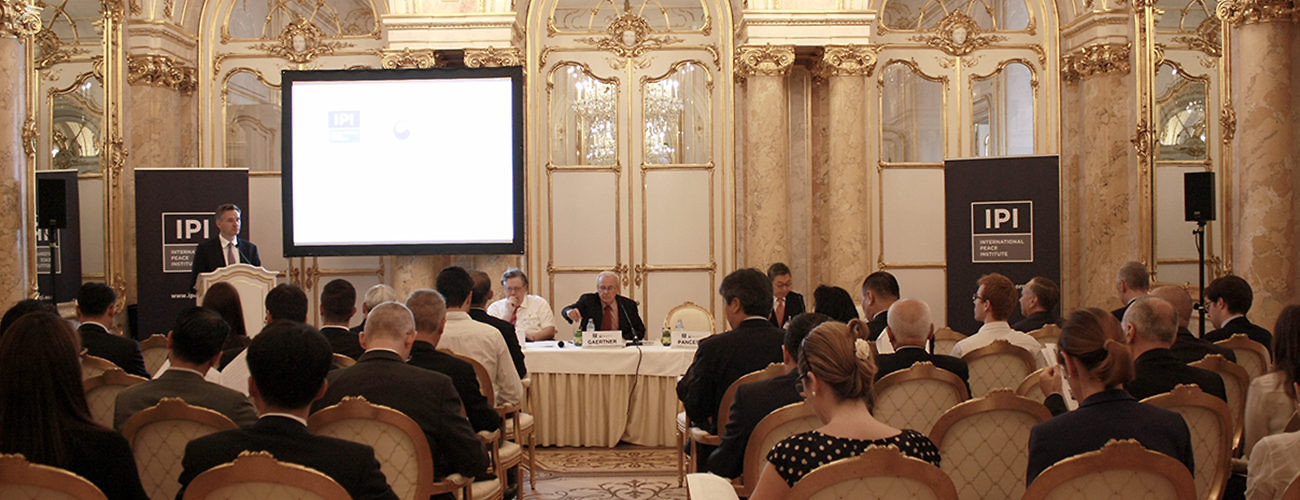On July 5th, the International Peace Institute, together with the Ministry for Foreign Affairs of the Republic of Korea, held a seminar in Vienna on the North Asia Peace Cooperation Initiative (NAPCI). The event was designed to increase awareness of NAPCI among Vienna-based institutions, and to enable NAPCI to learn from such institutions like the Organization for Security and Cooperation in Europe (OSCE) and the International Atomic Energy Agency.
NAPCI was initiated by President Park Geun-hye of the Republic of Korea in 2013 in order to improve security and cooperation in Asia. It is considered a key element of the Park administration’s Trustpolitik. Involving China, Japan, Mongolia, the Republic of Korea, the United States, Russia, and the Democratic People’s Republic of Korea, NAPCI is designed to promote regional dialogue and cooperation. It focuses on soft security issues like disaster management, nuclear safety, drugs, health, energy security, cyberspace, and the environment.
The seminar was opened by the Republic of Korea’s Deputy Minister for Political Affairs, Hyoung-zhin Kim. He noted the good cooperation between the Republic of Korea and both IPI and the OSCE, as well as the similarities between the guiding principles of NAPCI and the OSCE. In his welcoming remarks, IPI Senior Vice President Walter Kemp pointed out that almost exactly one year earlier, in the Palais Coburg where this seminar was being held, an agreement was reached between Iran and six world powers on limiting Iran’s nuclear program. He hoped that this would be an inspiration for a de-escalation of tensions on the Korean peninsula.
Several speakers recalled the “Asia paradox,” namely growing economic prosperity but deteriorating stability. To overcome this, they stressed the need for frameworks for cooperation, an open-ended process of dialogue, and agreed rules for improving good neighborly relations in Northeast Asia.
Within the course of the discussions, one speaker compared the role of the Republic of Korea to that of Finland during the Helsinki process of the 1970s, while another recalled the importance of the OSCE in the process of German reunification.
Over the course of three sessions, participants discussed a range of topics including lessons learned from the early days of the Conference for Security and Cooperation in Europe, the work of the OSCE in disaster risk reduction (DRR) and confidence-and security-building measures, as well as cooperation between NAPCI and other partners. There was particular interest in cooperation on nuclear safety issues as well as DRR. It was suggested that non-political issues are a useful entry point for fostering greater trust and cooperation.
It was suggested that efforts should be made to promote synergies between like-minded initiatives, like NAPCI, the UB dialogues (that take place in Mongolia), the Trilateral Cooperation Secretariat (involving China, Japan and South Korea), as well as the Conference on Inter-action and Confidence-Building Measures in Asia (CICA).
Networks were described as a useful way of pooling knowledge and widening support. It was noted that both NAPCI and the OSCE are working in this direction. For example, this event was organized as part of IPI’s involvement in the OSCE Network of think-tanks and academic institutions.
The seminar brought together over fifty experts and officials from the Republic of Korea, Japan, Mongolia, non-governmental organizations, as well as the United Nations, OSCE and NATO.








